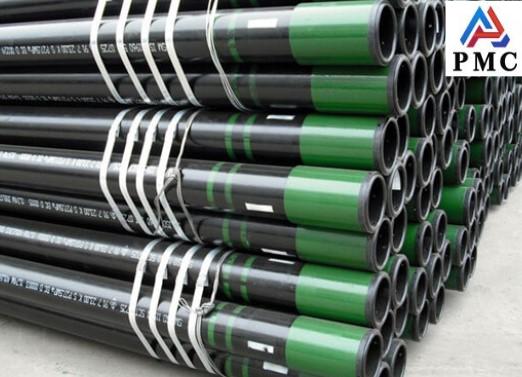
Casing Pipe Wall Thickness
Casing pipe wall thickness, in simple terms, refers to the thickness of the casing pipe wall. It is an important parameter of casing pipe and has a key impact on many fields. Different types of casing pipes have different wall thickness standards.
For example, the metal casing pipe commonly used in electrical installations has a wall thickness of mostly between 0.6-1.2mm, which meets basic pipeline protection needs; while specialized casing pipe used for waterproof and high-pressure environments (such as DN100 waterproof casing) usually has a wall thickness of more than 4.5mm to cope with more complex working conditions.
Importance of casing wall thickness
The importance of casing pipe wall thickness cannot be underestimated; it directly impacts casing pipe performance and safety. For example, electrical metal casing pipe is subject to various external pressures and impacts during daily use. For example, during construction, heavy objects may accidentally fall and strike the casing pipe. Appropriate wall thickness effectively resists these external forces, protecting the wires and cables within from physical damage and ensuring stable operation of the electrical system.
In some specialized applications, the importance of wall thickness becomes even more pronounced. For example, in high-voltage power transmission, cables must withstand immense internal pressure and the harsh external environment. Thick-walled casing pipe is crucial for ensuring safe and stable cable operation. Another example is oil and gas extraction, where pipelines traverse complex geological environments. Casing pipes must be thick enough to withstand stratum pressure, prevent rupture, and ensure safe oil and gas transportation.

Industry Standards for Casing Wall Thickness
Casing pipe wall thickness values are standardized under API 5CT and other industry regulations. API charts list common casing pipe sizes, weights, and grades, allowing engineers to select pipes that meet well depth, temperature, and pressure demands. Common API casing grades include J55, N80, L80, P110, each with specific strength and corrosion resistance properties. For quick reference, many professionals use an API casing pipe wall thickness chart to determine dimensions before purchase.
Factors affecting wall thickness selection
1. Pipeline operating pressure: Pipeline operating pressure is a key factor affecting the selection of casing pipe wall thickness. When the pressure inside the pipeline is higher, the casing pipe needs to withstand greater forces, which requires a thicker wall to prevent the pipeline from rupturing or deforming.
2. Pipe diameter: Pipe diameter is closely related to wall thickness. Generally speaking, the larger the diameter of the pipe, the greater the stress on the pipe wall under the same pressure conditions, so a thicker wall is required to ensure strength.
3. Pipe quality: The quality of the pipe itself is also important. High-quality pipes offer greater strength and toughness, allowing for thinner wall thicknesses under the same operating conditions. Poor-quality pipes, on the other hand, can exhibit unstable performance, requiring thicker wall thicknesses to ensure safe use.
4. Pipe welding quality: For welded casing pipe , welding quality influences the wall thickness selection. If the welding quality is high, the weld is strong and uniform, and can effectively transfer stress, then the wall thickness requirement can be appropriately reduced, provided that the strength requirements are met. Conversely, if the welding quality is poor, defects such as cold welds and pores exist, the overall strength of the casing pipe will be weakened, and in this case, the wall thickness needs to be increased to ensure the reliability of the casing pipe.
Benefits of Selecting the Correct Wall Thickness
Choosing the right wall thickness offers significant advantages:
1. Improved Well Integrity: Reduces risk of collapse and blowouts.
2. Longer Service Life: Withstands wear, corrosion, and high-pressure conditions over time.
3. Cost Efficiency: Prevents premature failure, reducing replacement and downtime costs.
4. Regulatory Compliance: Meets or exceeds API casing pipe specifications, ensuring industry-standard performance.
Read more: Casing Pipe Size


